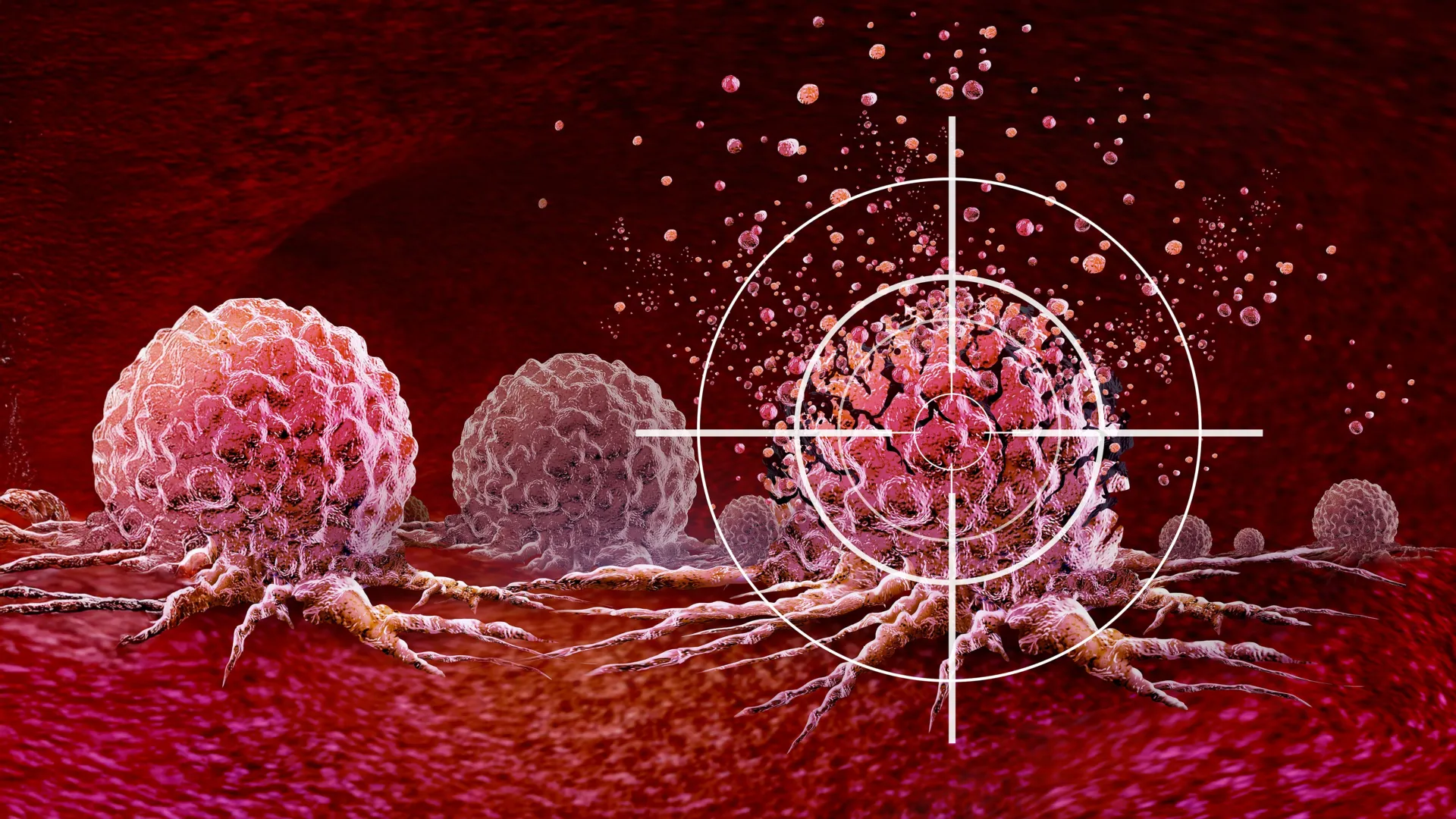Health
Researchers Develop Targeted Drug to Disrupt Cancer RNA Pathway

A team of researchers at the Hebrew University of Jerusalem has developed a novel drug that targets a specific RNA molecule critical to the survival of certain cancer cells. Published on November 13, 2025, in the journal Advanced Sciences, the study introduces a compound capable of identifying and dismantling TERRA, an RNA segment that some cancer cells exploit for growth.
The innovative drug employs a technique known as RIBOTAC, short for Ribonuclease-Targeting Chimera. This method allows the drug to pinpoint TERRA within cancer cells and trigger its destruction without affecting healthy RNA. The findings suggest a promising new avenue for cancer treatment that focuses on the genetic drivers of the disease, rather than merely addressing its symptoms.
Dr. Raphael I. Benhamou, along with colleagues Elias Khaskia and Dipak Dahatonde, led the research, which highlights the role of TERRA in maintaining chromosome stability. When TERRA malfunctions, it can interfere with normal cellular functions, contributing to the uncontrolled growth observed in various cancers, including certain brain and bone tumors.
Mechanism of Action
The RIBOTAC molecule is designed to recognize a specific structural feature of TERRA, known as a G-quadruplex. Once identified, the molecule enlists a natural enzyme, RNase L, to effectively degrade the RNA. This approach marks a significant breakthrough in the targeted destruction of TERRA, offering a level of precision previously unattainable in cancer therapy.
In laboratory tests using cancer cell lines, including HeLa and U2OS cells, the treatment demonstrated a marked reduction in TERRA levels, leading to a slowdown in cancer cell proliferation. The researchers believe this targeted strategy could pave the way for new cancer therapies that directly address the underlying genetic factors driving the disease.
Implications for Future Treatments
The implications of this research extend beyond merely targeting proteins, which has been the primary focus of most existing cancer treatments. Dr. Benhamou expressed optimism about this new approach, stating, “We are now learning how to target the RNA that controls them. That could open the door to treating diseases we once thought were impossible to reach.”
The ability to specifically target RNA molecules could revolutionize the landscape of cancer treatment, offering new strategies for conditions that have traditionally resisted effective therapies. As research continues in this area, the potential for developing RNA-targeting medications could lead to advancements that significantly alter patient outcomes in the fight against cancer.
The study reinforces the notion that innovative approaches to understanding and treating cancer can lead to breakthroughs that may redefine medical paradigms. As the scientific community continues to explore the complexities of RNA and its role in cancer, this research stands out as a promising step forward in the quest for more effective cancer therapies.
-

 Top Stories3 weeks ago
Top Stories3 weeks agoMarc Buoniconti’s Legacy: 40 Years Later, Lives Transformed
-

 Health3 weeks ago
Health3 weeks agoInnovative Surgery Restores Confidence for Breast Cancer Patients
-

 Business2 weeks ago
Business2 weeks agoForeign Inflows into Japan Stocks Surge to ¥1.34 Trillion
-

 Sports4 weeks ago
Sports4 weeks agoSteve Kerr Supports Jonathan Kuminga After Ejection in Preseason Game
-

 Top Stories3 weeks ago
Top Stories3 weeks agoBOYNEXTDOOR’s Jaehyun Faces Backlash Amid BTS-TWICE Controversy
-

 Science4 weeks ago
Science4 weeks agoChicago’s Viral ‘Rat Hole’ Likely Created by Squirrel, Study Reveals
-

 Lifestyle4 weeks ago
Lifestyle4 weeks agoKelsea Ballerini Launches ‘Burn the Baggage’ Candle with Ranger Station
-

 Entertainment4 weeks ago
Entertainment4 weeks agoZoe Saldana Advocates for James Cameron’s Avatar Documentary
-

 Politics4 weeks ago
Politics4 weeks agoDallin H. Oaks Assumes Leadership of Latter-day Saints Church
-

 Science2 weeks ago
Science2 weeks agoUniversity of Hawaiʻi Joins $25.6M AI Project to Monitor Disasters
-

 Business4 weeks ago
Business4 weeks agoTyler Technologies Set to Reveal Q3 2025 Earnings on October 22
-

 Lifestyle4 weeks ago
Lifestyle4 weeks agoDua Lipa Celebrates Passing GCSE Spanish During World Tour









